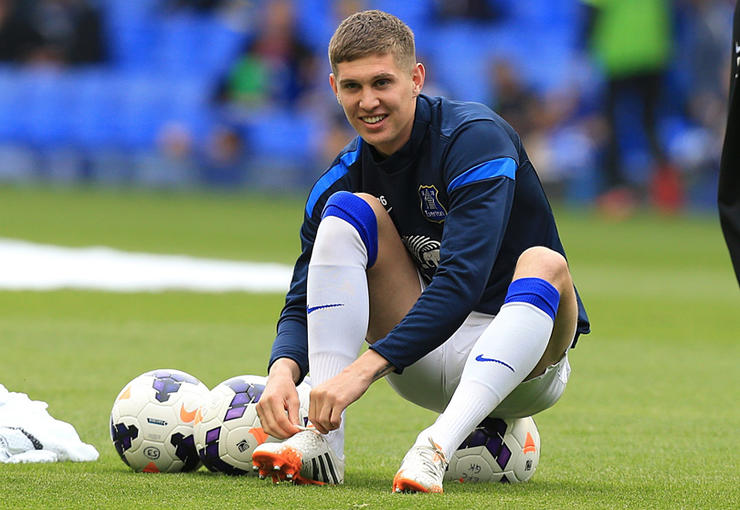How Callum Hudson-Odoi epitomises the young, English mentality of 2018
If you’re not going to play them, they’ll find someone who will. Daniel Storey on the country’s finest youngsters taking a stand and losing their fear
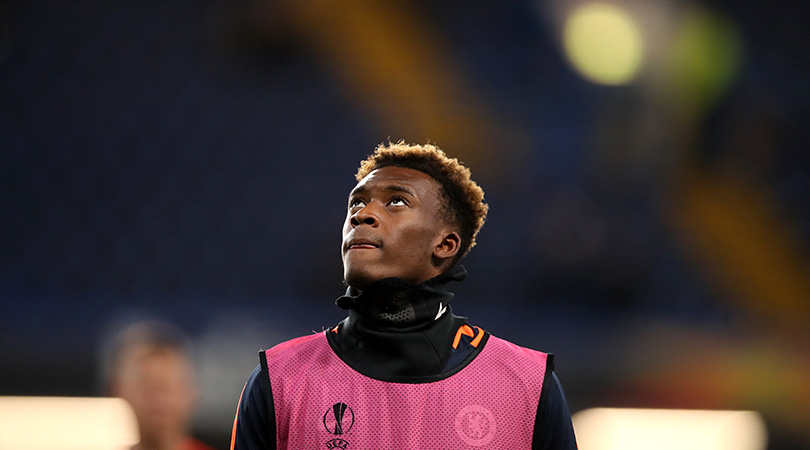
One of the core principles of sports psychology is control. One element of control, perceived control, is loosely defined as a belief that you are capable of achieving desired outcomes and achieving goals.
It applies on a micro level (“I can score this chance”) and macro level (“I can make it all the way to the top”). According to the sports psychologist, mental preparation breeds confidence and confidence breeds control.
There is an inequality in our usual treatment of young players. We expect the micro elements of perceived control, but guard against the macro. We tell young players to wait for their chance, and yet demand that they are immediately confident in their surroundings when that opportunity comes.
The brave way
A year ago, Jadon Sancho had played only 16 minutes of top-flight football. But he had already seized control of his career; at the age of 17, the winger had rejected Manchester City’s overtures in favour of a move to Borussia Dortmund.
In theoretical terms, the decision was easy. Sancho’s macro goal was to become an England international, play Champions League football and develop as quickly as possible. Dortmund, with their reputation for putting faith in youth and regular Champions League participation, were the natural habitat.
But do not overlook Sancho’s bravery. He rejected a £30,000-a-week contract offer from Manchester City, which would have made him financially comfortable. Leaving your country of birth at any age is a daunting prospect, but doing it at 17 takes courage. We are an island nation whose population is traditionally not predisposed towards professional migration.
Get FourFourTwo Newsletter
The best features, fun and footballing quizzes, straight to your inbox every week.
Twelve months on, Sancho is a senior England international and one of the brightest young stars in European football. He has played 1,800 Bundesliga minutes for Dortmund. By way of comparison, that is approximately 1,000 more league minutes than Ruben Loftus-Cheek has played for Chelsea. Loftus-Cheek is four years Sancho’s senior.
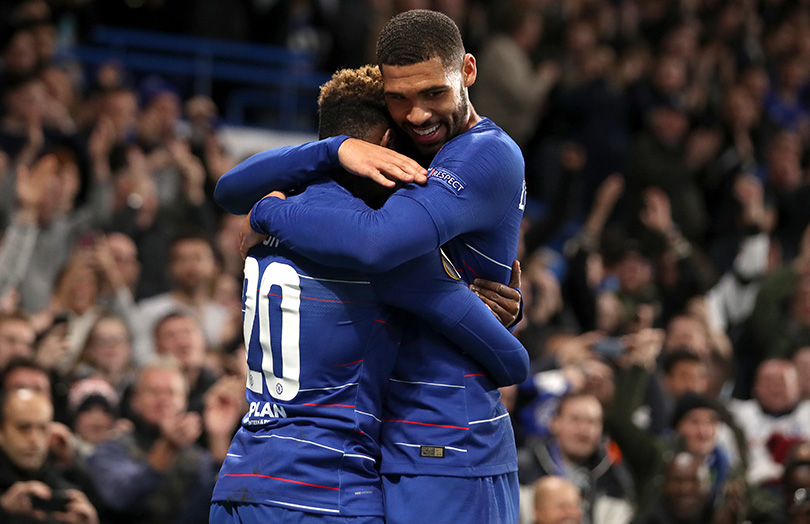
Now Callum Hudson-Odoi faces the same decision. Bayern Munich have submitted two bids to Chelsea to sign the winger permanently, the second of which is for £30m. Reports suggest that Chelsea are holding out for £40m but would be prepared to sell at that price. Hudson-Odoi is thought to be keen on the move. Eight months younger than Sancho, he is in the same quandary: so far, he has played 69 top-flight minutes.
NEWS Kovac in the dark over fresh Bayern Munich bid for Hudson-Odoi
Under pressure
Like Sancho, Hudson-Odoi’s chance will eventually come at Chelsea, even after the arrival of Christian Pulisic for £58m. Willian and Pedro are both the wrong side of 30 and are out of contract in summer 2020. But by staying at Chelsea, Hudson-Odoi may believe that he is ceding his macro perceived control to his club. He should be congratulated for forcing the issue at such a tender age.
The Premier League’s top six is no country for young men. Sancho may well have made the grade at Manchester City, but not this quickly. Not with Leroy Sané, Raheem Sterling and Bernardo Silva in the squad, and the signing of Riyad Mahrez.
That is not to blame the clubs or their managers, although supporters are understandably defensive in the face of perceived criticism. The pressure to win never ceases, and the patience for setbacks rarely grows. The short-termist demand for success is more evident at Stamford Bridge than anywhere else. Inserting buy-back clauses in deals to sell their young talent is a handy insurance policy. Chelsea don’t want another Kevin De Bruyne.
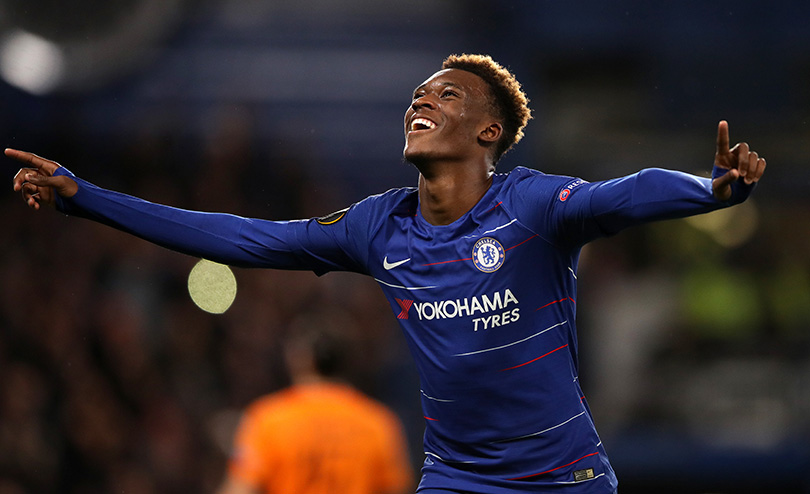
As Maurizio Sarri said when discussing Hudson-Odoi: “I have to win. I can understand very well that a fan loves young players from the academy but in the long run I have to win matches and the fans want me to win matches.”
The two are sold as mutual exclusives by the man who controls Hudson-Odoi’s short-term chances at Chelsea. But Sarri is right: young players make mistakes, make poor decisions and improve through learning.
New thinking
When players do come through at the country’s biggest clubs, it is usually through necessity – and even then they must hit the ground at sprinting speed.
Marcus Rashford is the poster boy example, thrust into centre stage by an injury crisis. Anyone believing that Rashford would have progressed quite so quickly had Anthony Martial and Will Keane both been fit in February 2016 is an admirable optimist.
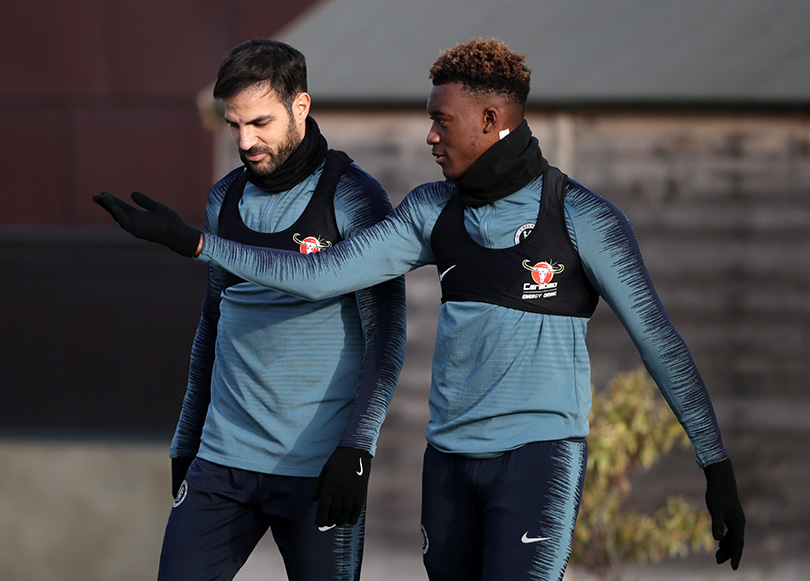
One of the most pleasing hallmarks of England’s success at youth level over the last two years is the demonstrable confidence of their players. Each step up is made consummately. But this is not coincidence; it is the result of effective mental preparation. The legs are kicking beneath the water as the swan swims across the pond.
It’s this same preparation, in combination with England’s rampant success at youth level, that has given our young players the belief to search further afield for their regular league minutes.
Talented English academy players have never been hotter property, and never been more prepared to seize control of their destiny. Not going to cherish me? Then I’ll find someone who will.
